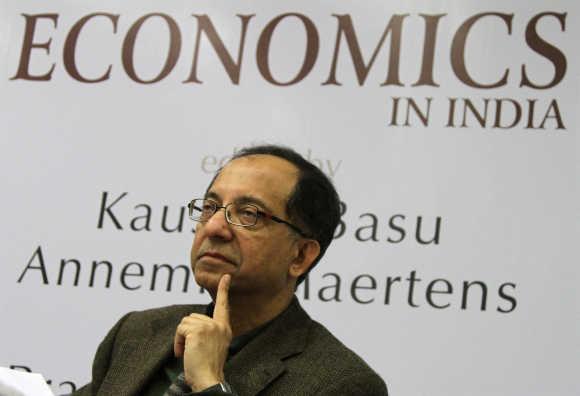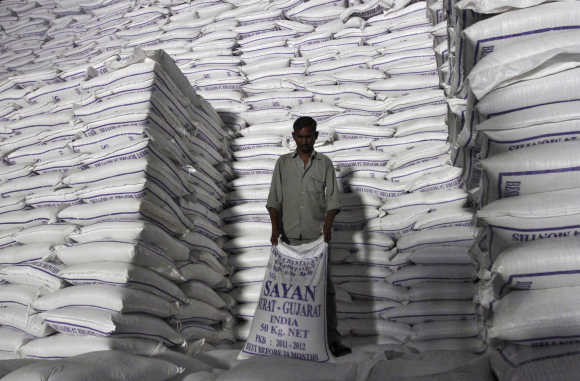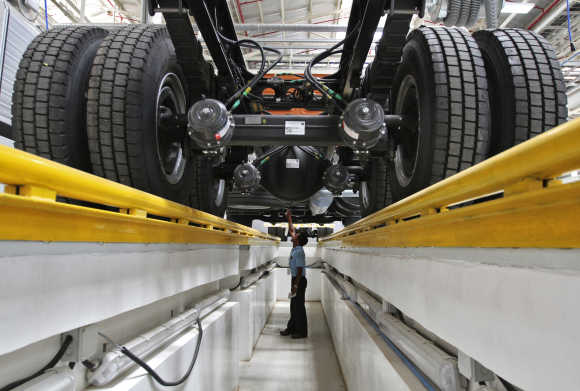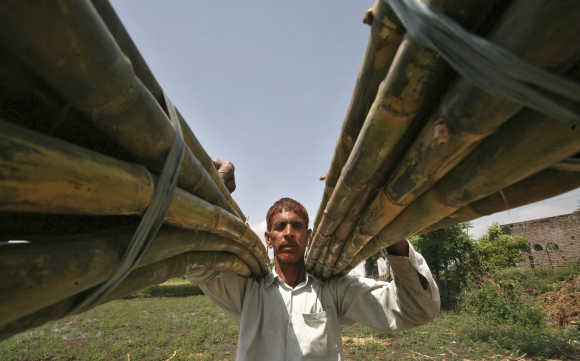
The next day, Indian papers were awash with reports from the Press Trust of India, quoting Basu saying that you were not likely to see any major reforms till the elections of 2014 - after which "you would see a rush (of them)," propelling India to one of the fastest growing economies of the world.
This must have sounded as nothing short of treason to the Congress party and its government.
...

Here was the Chief Economic Advisor of India, indicting his own brethren for the failure in galvanizing the Indian economy.
Ironically, his alleged comments came a day after the Finance Ministry officially started a hunt for his successor by issuing a circular for 'Appointment to the post of Chief Economic Adviser in the pay scale of Rs 80,000...on contract basis."
The opposition had a field day with his remarks, proclaiming that this was exactly what they had been saying all along - that an inept government were incapable of pushing through reforms.
Basu was quick to jump in and explain himself. What he had been saying all along, said Basu, was that coalition politics was the chief culprit behind the reform slowdown, and that a single party rule post-2014 would be the catalyst for future progress on this issue.
...

The inability of pushing through the General Sales Tax was a good example of this, he said, because the opposition realised this was a good reform and wanted to take credit for it. So, they decided to stall it.
Basu may be right, but this is one example, say his admirers, of why he should not be part of the government system, doing the job of a bureaucrat.
Basu is one of the most influential economic theorists on development issues today with a reputation for being a brilliant academic who has formulated important theories in political economy, how social institutions work in economic policies as well as gender and bargaining.
...

On leave from Cornell University where he is Professor of Economics, Basu provided a glimpse into his ability to think innovatively from several ideas in the Economic Survey that he midwifed (one which advocated a fixed amount as diesel subsidy), as well as new chapters in the Economic Survey, namely 'Micro-Foundations of Macroeconomic Policy' and 'Sustainable Development and Climate Change'.
His other important ideas were freeing up food prices, the use of food coupons to subsidise the poor, as well as opening up of multi-brand retail for foreign direct investment.
Yet, the work that has garnered him the most attention recently, was for a paper titled 'Why, for a Class of Bribes, the Act of Giving a Bribe should be Treated as Legal,' where he boldly suggested that while the law treats both bribe-giving and bribe-taking as crimes, this makes it hard to expose corrupt officials.
...

Instead, using game theory, he suggested that the giver of "harassment" bribes should have full immunity from any punitive action by the State.
He defined "harassment" bribes as those which people often have to give to get what they are legally entitled to such as a driving licence or a ration card.
"The reasoning is that once the law is altered in this manner, after the act of bribery is committed, the interests of the bribe giver and the bribe taker will be at divergence," he said.
We are not sure how Anna Hazare would react to something like this, but Basu is someone who is known to have the conviction that good personal moral qualities are essential ingredients for economic growth.
...

According to Basu, honesty, trustworthiness and personal integrity, when adopted as important markers by society, go a long way in promoting economic development.
It is ironic that Basu produced this paper when his own government was presiding over some of the most high-profile corruption scandals in the country's history.
Before moving to Cornell, this acolyte of Amartya Sen was Professor of Economics at the Delhi School of Economics, where in 1992 he founded the Centre for Development Economics.
...

He was its first executive director. He is also a founding member of the Madras School of Economics. The government conferred on him Padma Bhushan in 2008.
For all of Basu's brilliance, however, many in his own fraternity found him an odd choice for the job. Here was a theorist who was moving to the policy world.
Yes, he did redefine the role of the economic advisor by pushing boundaries, but it is unclear whether he was effective in his actual duties - which were to interpret numbers and make projections.
...

And as far as his free-speaking ways are concerned, a renowned economist and now chairman of the Prime Minister's Economic Advisory Council, C Rangarajan, said this: "Basu's coming to the government was a great asset. He was able to look at problems with a fresh approach," but also added the following warning: "When you are in the government, you can write on abstract principles, that is not a problem.
"But, on the specific policies and solutions, freedom to express is required before a decision is taken, but once a decision is taken by the government on any policy, you have to exercise restraints on expressing your own opinion."
Consider this fair warning to the person filling his shoes.